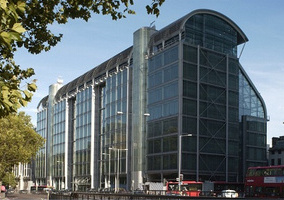The Wellcome Trust has pledged to invest billions more into scientific research after a sharp increase in the value of its investments.
Wellcome, the largest charity in the country by assets, published its latest financial accounts yesterday, for the year to September 2021. They show that its investment portfolio is worth over £38bn, up from around £29bn, after spending £1.2bn last year. The portfolio has tripled in value in the last ten years.
Director Jeremy Farrar said that, as a response to this growth, Wellcome plans to increase spending over the next decade by 50% to £16bn.
The charity said in a statement that it aimed to “scale up in a deliberate and sustainable way, ensuring that we can consistently fund research to improve health in all economic climates”.
Rewards for investment performance
Wellcome spent nearly £110m on investment management fees and administration last year, according to the filings, including multi-million-pound salaries for several members of its internal investment team.
The best-paid investment manager got £7.9m, while seven members of the team received over £1m.
In 2020-21, the charity sold Kymab, the life sciences firm which was Wellcome Institute’s first spin-out business, for over $1bn.
Farrar was paid £515,000. This is a rise of 6% compared with 2019-20, but slightly less than he received in 2018-19, when he donated his bonus to another charity.
The accounts show that Wellcome made scientific grants worth £860m last year. Much of this money went to fund university research across the UK, as well as £19m to The Francis Crick Institute.
The report says that Wellcome is guided by “our unswerving support for discovery research, which remains the best engine for generating new insights and inspiring new ideas”.
Redundancies
The median gender pay gap at the charity has fallen for the fourth year in a row, but men are still paid on average 13.2% more than women, the accounts say.
Wellcome made both voluntary and compulsory redundancies last year as part of restructuring the charity, which it acknowledged had been “disruptive for staff”. It ended the year with 878 staff, down from 908 in 2019-20.
Governance
The accounts also show that Wellcome conducted an internal review of its governance last year, which highlighted “areas for improvement” including the need for a skills audit and a greater focus on succession planning for trustees and executives.
This work will be part of an independent governance and board effectiveness review, which will be conducted by an external consultant later this year.
Pledge to address 'great challenges'
Farrar said: “These returns mark a step-change in Wellcome’s ability to fund and support new discoveries in science and health, and help solve three of the great challenges of the 21st century – climate change, infectious diseases and mental health.
“With plans to spend £16bn on our mission over the next decade, we will be increasing our spending from the previous decade by more than 50%.
“This gives us a huge opportunity to increase our support for scientific research that will make a real difference to people everywhere in the years to come.”
Editor's note 12.50pm, 12 January 2022. This article was updated to reflect the gross rather than net value of Wellcome's investments
Related news











